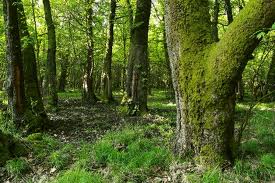Poetry and fragrances in ol’ Araby and in all the lands of Islam

POETRY OF THE TALIBAN
I know that the Taliban are not necessarily Arabs, nor are they known for their poetic works, but this article sounds promising about a new book about the Poetry of the Taliban.
Read about the book, Poetry of the Taliban, HERE
An interesting and important read. Salam
Verses of the Holy Q’uran are supremely poetic, but is it credible to argue that the common Taliban warriors can express themselves in a poetic way? hmm, maybe. Sounds like an unlikely project, although its real. I argue it’s also very important to acknowledge the humanity, creativity and potential good of our purported enemies.
I’ll let other scholars debate the research and the artistic value of poetic writings by Taliban warriors, but I do like the courage and creativity that was required for those scholars and journalists who are pursuing this kind of project—in this case, living and working in Kandahar, Afghanistan.
I recall so many instances of poetry in Arabic and the high value placed upon oratorical skill, but my sense memory of life in Islamic world also extends to fragrances.
Recalling the fragrances and olfactory dimension of life in the Islamic world—I recall with profound sensorial affection that flowers, wood, and saps–the sources of the wonderful fragrances, particularly in the Arab-Islamic world, and throughout many other parts of Asia–were the prize of my life in those years and in those places where I lived and worked.


ROSE OIL
VENDOR in Dubai, or maybe it was Cairo.
FRAGRANCE
I am particularly fond of the fragrant smoke and oils from wood chips. This is a great article that provides an overview for understanding about “aoud.â€


Poetry and fragrances? am I crazy, what’s the connection?
Well, there is so much that is beautiful, timelessly universal, and worthy of attention–yet unrecognized or demonized or unknown in the West—residing in the sinewy fibre of Islamic culture(s), throughout its massive geographical spread.

Unfortunately, it seems that so many American folks (the untravelled majority in the USA) do not know much about actual people and their daily life in the Islamic world.
Poetry and fragrances are good tools for the West to use in the effort of humanizing and attaching greater empirical significance to the intrinsic wealth within the Islamic world’s vast area, with its ecological and cultural diversity, social complexity, and rich histories. It is not a shocking secret or a newsworthy headline, but it is a fact, at least in qualitative terms that Americans know or care little about the rest of the world, particularly those uppity foreign zones of conflict.
Would you agree that a majority of Americans are pridefully myopic about world geography, history, and sociology? There might not be overt or articulated acknowledgement that this is a fact, so all I can do is postulate here that the possibility is true.
The mainstream mantra that can easily be heard might be, “Why should I care about X (any place away from the center) when I am in the best place in the world right here (some vague notion of America)?!†That would be the most common mantra by a member of the US public. The “other†lives far away from me and us is strange and foreign and bad–that is the tautology and logic that I observe.

After more 20 years of residence, travel, and work in various parts of the Arabian peninsula and East Africa, and after 20 years of living and experiencing the cultures on the island of Mindanao, Philippines (where Arabic can be heard), and of careful and patient travel in other parts of south and southeast Asia—in contrast to my life and experiences in the USA–I observe a mindset clouded by arrogant disregard, misunderstanding, and non-awareness, on both sides.
Sadly, the truth might be that a more defiant and intentional barrier exists here in the West, more so than in the East, presumably constructed to protect the OTHER from becoming human, logical, coherent, and near.


FRAGRANT FOREST
The poetic inclinations of the Arabic language, and in the other ancient languages found in the western half of Asia such as Pashtun, Urdu, Darii, and so many others are an unrecognized “good†not usually mentioned or cared about by folks in the West. Also, to my ears the passion of chants in Binukid and the mountain peoples throughout Australasia sure do sound and present themselves to me as a aural reminder of ancient Vedic/Aryan epics.
Today, I am sure the gaps, ignorances, arrogance, and the rest of the bad things are equitably distributed to the fault of both sides; but the underlying and intentional poetic heard high and low throughout the Arabian peninsula and across much of south and southeast Asia, in many ancient languages, resonates for me like a lingering and valiant siren in my ears and memory.
I believe that research and the book about poetry by “Taliban†is a great starting point for mutual understanding, more meaningful dialogue, and peace.